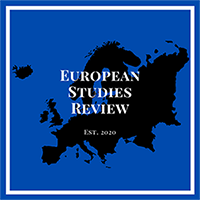By Alessia Mauri
Moroccan women’s political participation is an essential component of the country’s democratization and modernizing processes. Moroccan women obtained the right to compete for office in 1963, even though no woman was elected to the country’s parliament until 1993. Over the past two decades, Morocco has reformed its legal and institutional framework to promote women’s representation in decision-making positions. Nevertheless, women’s political voice remains underrepresented. In a period marked by the desire to build economically competitive societies, to catalyze social cohesion and social justice, the European Union and Morocco aim to empower women to be equal partners in the countries’ political future.
The EU put forward ambitious plans to promote women’s empowerment in politics in Morocco. Since 2012, with budget assistance of EUR 35 million, the EU has been funding Morocco’s Government Plan for Equality – PGE 1 and 2, aimed at “strengthening women’s political representation […] and seeking to reinforce affirmative action measures”. Further, as a co-financier, the European Commission supported the three-year pilot project ‘Let’s Get Involved! For More Women in Politics in Morocco and Benin’ (2018-2021). The project launched in March 2018 by a consortium of African and European partners under the leadership of the Konrad Adenauer Foundation. It encouraged women’s participation and influence across eight Moroccan political parties by bolstering the skills and confidence of young female party members, increasing the awareness of senior party officials, and establishing more inclusive party structures. To achieve these goals, the Konrad Adenauer Foundation (KAS) “offers direct mentoring opportunities to young women, while sharing tools with political parties to encourage them to better integrate aspiring politicians”.
In 2020, the EU started supporting Morocco’s Parliament through the EU Twinning Instrument (2020-2022) to share the EU member states’ public sector expertise with Morocco. With a budget of EUR 1.2 million, the project encourages Moroccan parliamentary staff members to commit themselves to the principle of gender equality and to develop instruments and strategies based on a gender-sensitive approach. To meet the reform demands, in 2016 Morocco’s government revised the gender quota first adopted in 2002, increasing the number of parliamentary seats reserved for women from 30 to 60. As a result, women’s representation in Parliament has continuously increased. Ahead of the September 2021 general election, the country’s government approved a new electoral law, which now reserves 90 parliamentary seats for women elected from regional electoral lists. This measure effectively made a difference as 95 of 395 seats in the House of Representatives are now held by women. For the first time, in Morocco’s three major cities: Casablanca, Marrakech, and Rabat, three women were elected as mayors.
Despite these achievements, the EU’s pursuit of policies to achieve progress in women’s political voice in Morocco faces several societal and institutional challenges. The socio-cultural beliefs and conservative legal norms of Moroccan patriarchal society place different expectations on women and men regarding their contribution to society. Even though Morocco has lifted legal restrictions on women’s ability to vote and run for office, they continue to face discriminationunder family and personal status. This uneven social and legal status negatively affects women’s political participation, because “ […] when a woman succeeds in affirming herself, there is a huge mobilization against her […]”. The differing gender expectations and women’s fear of being stigmatized for challenging social norms has slowed the implementation of gender parity laws. Further, as Joseph Suad argues, male political dominance “reinforces patriarchy in that males and seniors constitute the overwhelming majority of political power-holders, as heads of state, members of parliament, government officials, and members of political parties”. Accordingly, political parties in Morocco are male-dominated, as men tend to appoint other men and use gender-blind criteria for selecting candidates. Undoubtedly, political parties respect the law prescribing quotas to enhance women’s inclusion but as women are perceived as less electable, they place them in lower positions or in the electoral constituencies where the party is less likely to win. The reactions of the political parties to the proposed reforms or implementation process are torn between hesitation, reticence, and hostility. Ultimately, interests, ideological and political stakes prevail over the promotion of the principle of parity in democratic political participation.
Since 2012, the EU has supported programs for strengthening women’s political representation and institutional gender equality in Morocco. Yet, the conservative legal norms, the patriarchal societal stereotypes, and male dominance over political parties are slowing down the path towards women’s empowerment in Morocco. Notwithstanding the significant alarm bells of the ongoing political discrimination against women, political participation, and representation of women in Morocco are resounding ever louder and this may lead to institutional and legal reforms to strengthen women’s political rights in the country.

